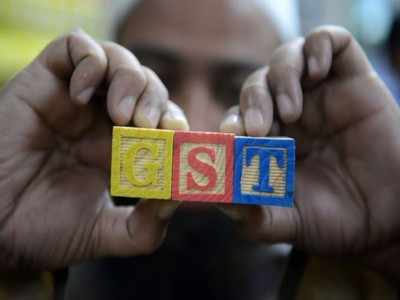- News
- Business News
- India Business News
- IGST does not apply where online tests require human intervention, rules AAR
Trending
This story is from June 22, 2020
IGST does not apply where online tests require human intervention, rules AAR
The GST Authority for Advance Rulings (Karnataka bench), in an application filed by an overseas company, analysed different modules of ‘Online Information Database Access and Retrieval Services’ (OIDAR) to determine which services would come under the scope of integrated goods and service tax (GST).

(Representative image)
MUMBAI: The GST Authority for Advance Rulings (Karnataka bench), in an application filed by an overseas company, analysed different modules of ‘Online Information Database Access and Retrieval Services’ (OIDAR) to determine which services would come under the scope of integrated goods and service tax (GST).
Under the GST provisions, OIDAR is a category of services provided through the internet and received online without any physical interface with the supplier.For instance, downloading of an e-book online for a payment would amount to receipt of OIDAR services by the consumer.
In this case, an overseas company, provided three modules of online tests to its clients, such as educational institutions and others (which were non-taxable entities). The IGST Act provides in case of supply of OIDAR by any person located in a non-taxable territory (ie: overseas) and received by a non-taxable online recipient, it the supplier who will pay the IGST.
In one module, the role of the administrator was limited. Here, the candidate after online registration and payment of fees had to go to a test centre. His/her identity was verified by the administrator and a computer was assigned for completion of the test, under the supervision of the administrator.
As regards another module, it required more than minimal human intervention. In this module, the test consisted of a mix of multiple-choice questions and essay writing. The essay was sent to a human evaluator in the US for assessment and final scoring. The AAR held this would not amount to an OIDAR service. Further, as the non-OIDAR supply was received by non-taxable clients (educational institutions), the supply itself was exempt from GST.
Under the GST provisions, OIDAR is a category of services provided through the internet and received online without any physical interface with the supplier.For instance, downloading of an e-book online for a payment would amount to receipt of OIDAR services by the consumer.
In this case, an overseas company, provided three modules of online tests to its clients, such as educational institutions and others (which were non-taxable entities). The IGST Act provides in case of supply of OIDAR by any person located in a non-taxable territory (ie: overseas) and received by a non-taxable online recipient, it the supplier who will pay the IGST.
In one module, the role of the administrator was limited. Here, the candidate after online registration and payment of fees had to go to a test centre. His/her identity was verified by the administrator and a computer was assigned for completion of the test, under the supervision of the administrator.
Once the candidate has completed the test, the scores were provided by a computer-based algorithm on the electronic software and the result was immediately available. The AAR held that this was a composite supply and IGST provisions would be attracted.
As regards another module, it required more than minimal human intervention. In this module, the test consisted of a mix of multiple-choice questions and essay writing. The essay was sent to a human evaluator in the US for assessment and final scoring. The AAR held this would not amount to an OIDAR service. Further, as the non-OIDAR supply was received by non-taxable clients (educational institutions), the supply itself was exempt from GST.
End of Article
FOLLOW US ON SOCIAL MEDIA
















